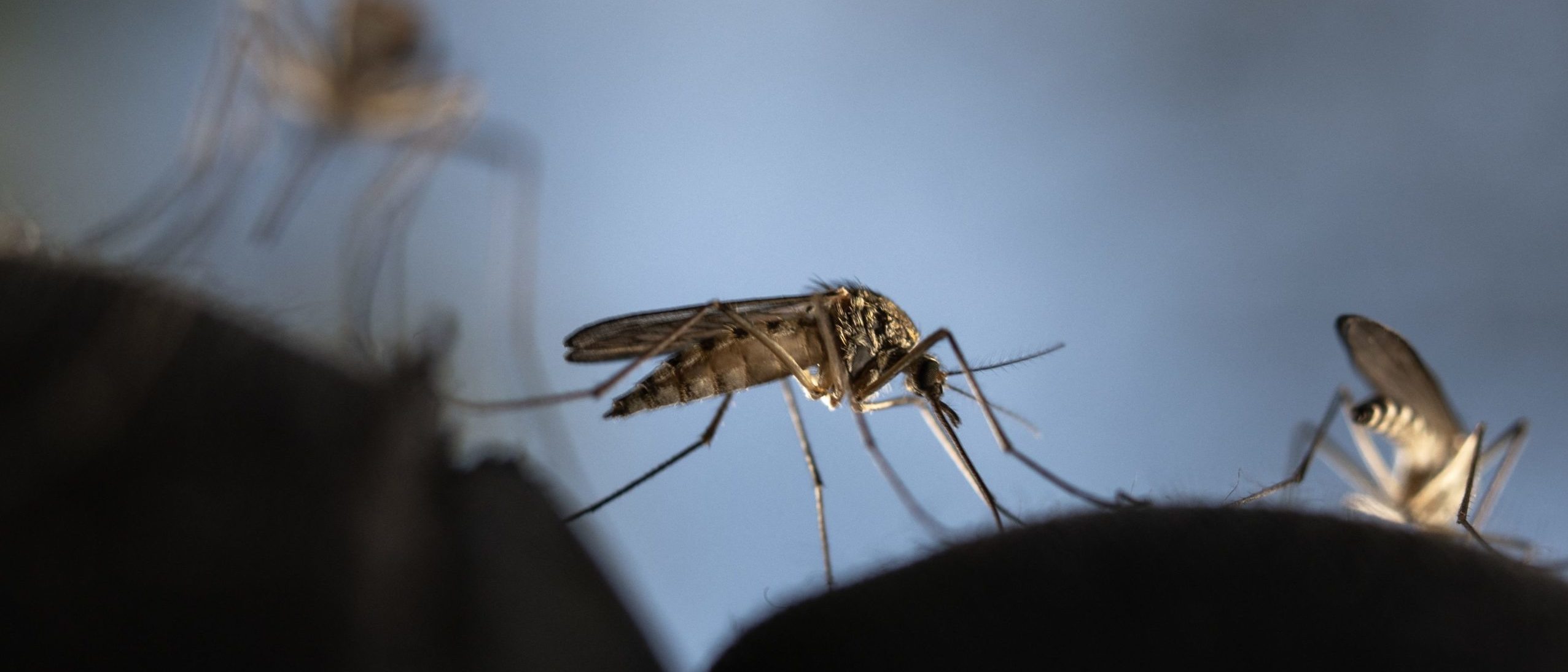The Centers for Disease Control and Prevention (CDC) issued a Health Advisory on Monday alerting healthcare workers and the public of the rare return of locally acquired malaria in the country, according to a statement.
Four locally acquired malaria cases were identified in Florida and one potentially unrelated case in Texas, according to the health advisory. The patients were responding well to treatment and mosquito surveillance and control measures were rolled out in the affected areas. The advisory was warranted as malaria in the U.S. is usually an imported infection, associated with travel to endemic areas. The last time locally acquired mosquito-borne malaria cases were identified was in 2003 in Palm Beach County, Florida, according to the advisory. (RELATED: Wildlife Experts Investigating Contagious And Fatal ‘Zombie Deer Disease’)

Mosquitoes trying to sting through a glove in a deep forest near Sundom, western Finland, on June 18 2023. Warmer temperatures and presence of stagnant waters create more habitat for mosquitoes and increase the mosquito bite rate. (Photo by OLIVIER MORIN/AFP via Getty Images)
Malaria is a serious and potentially fatal disease, with signs and symptoms such as fever, chills, headache, muscle pain, fatigue, vomiting, and diarrhea occurring generally between just over one week to four weeks after exposure, per the advisory. The female anopheline mosquito, which serves as the vector for malaria, lives in many regions of the US and can transmit malaria parasites if it bites an infected person.
Although the risk of locally acquired malaria remains extremely low in the US, places with favorable conditions for the vectors or with travelers from malaria-endemic regions such as sub-Saharan Africa and Southeast Asia are at a higher risk for locally acquired malaria infections, per the advisory. The disease is, however, not transmitted directly from person to person.
The advisory called for testing and treatment preparedness for healthcare personnel. The CDC also called for preventive measures such as the use of insect repellents, mosquito nets, and loose, long-sleeved clothing, as well as checking indoor and outdoor water-holding containers for possible mosquito breeding, and taking travel-related health precautions.


